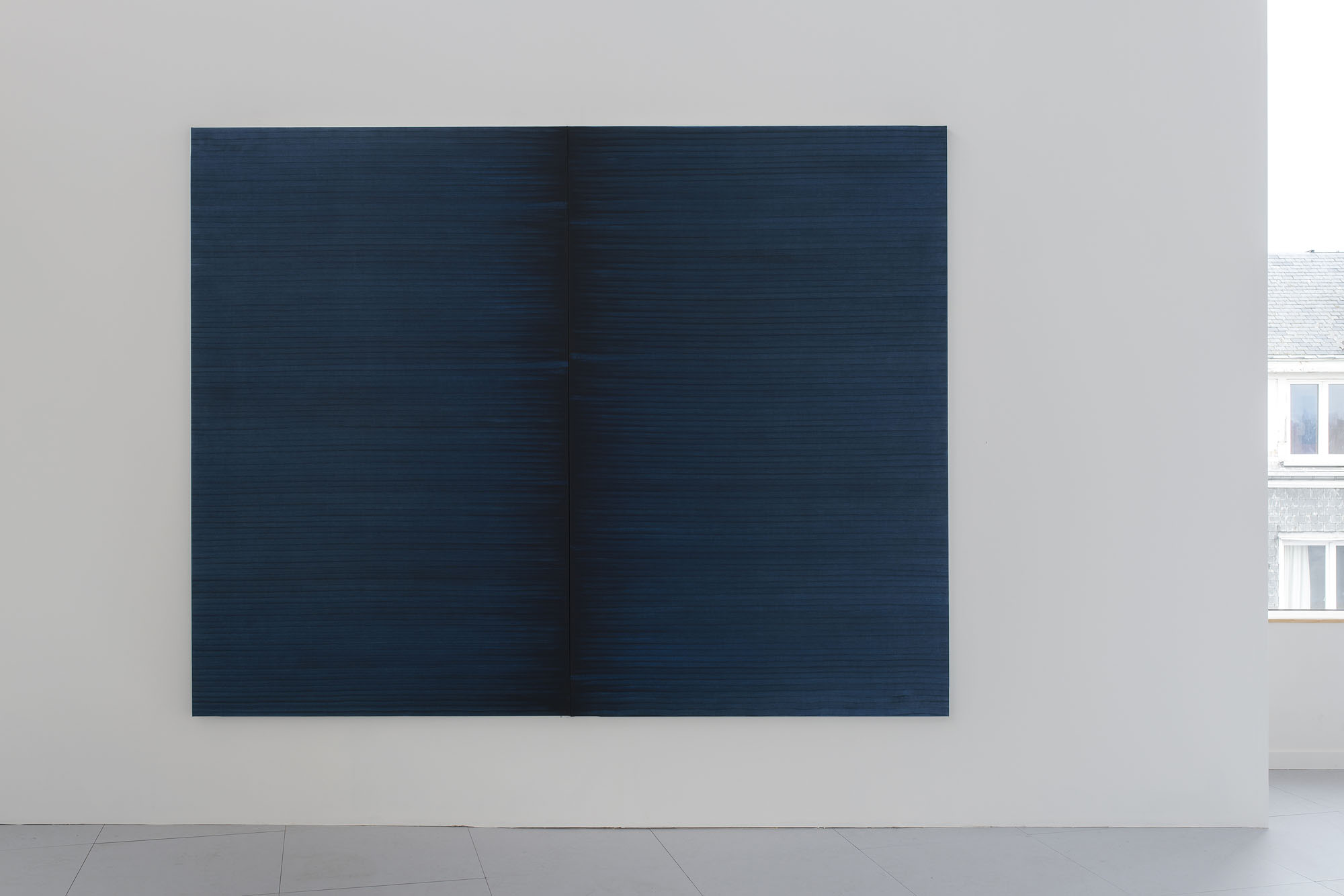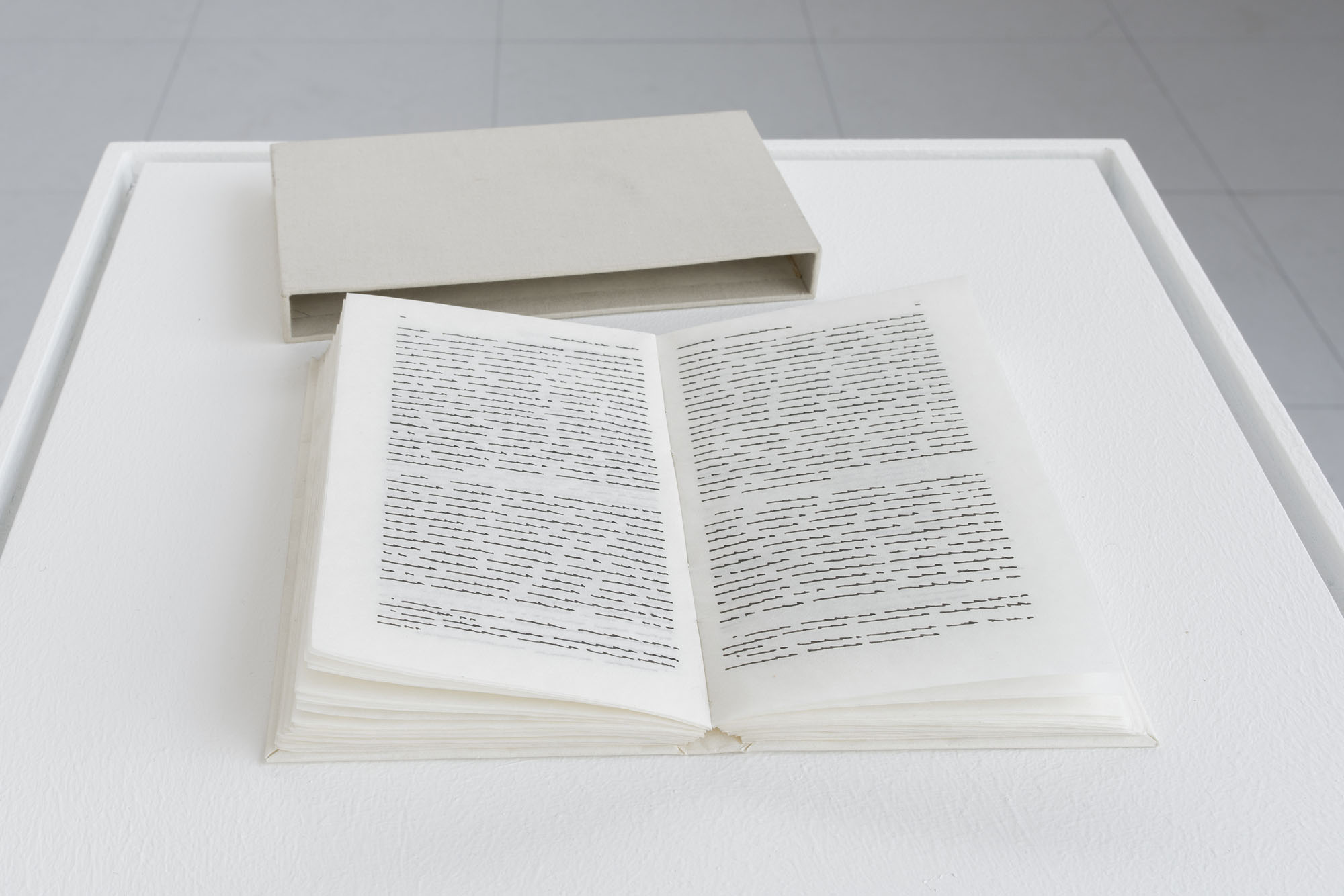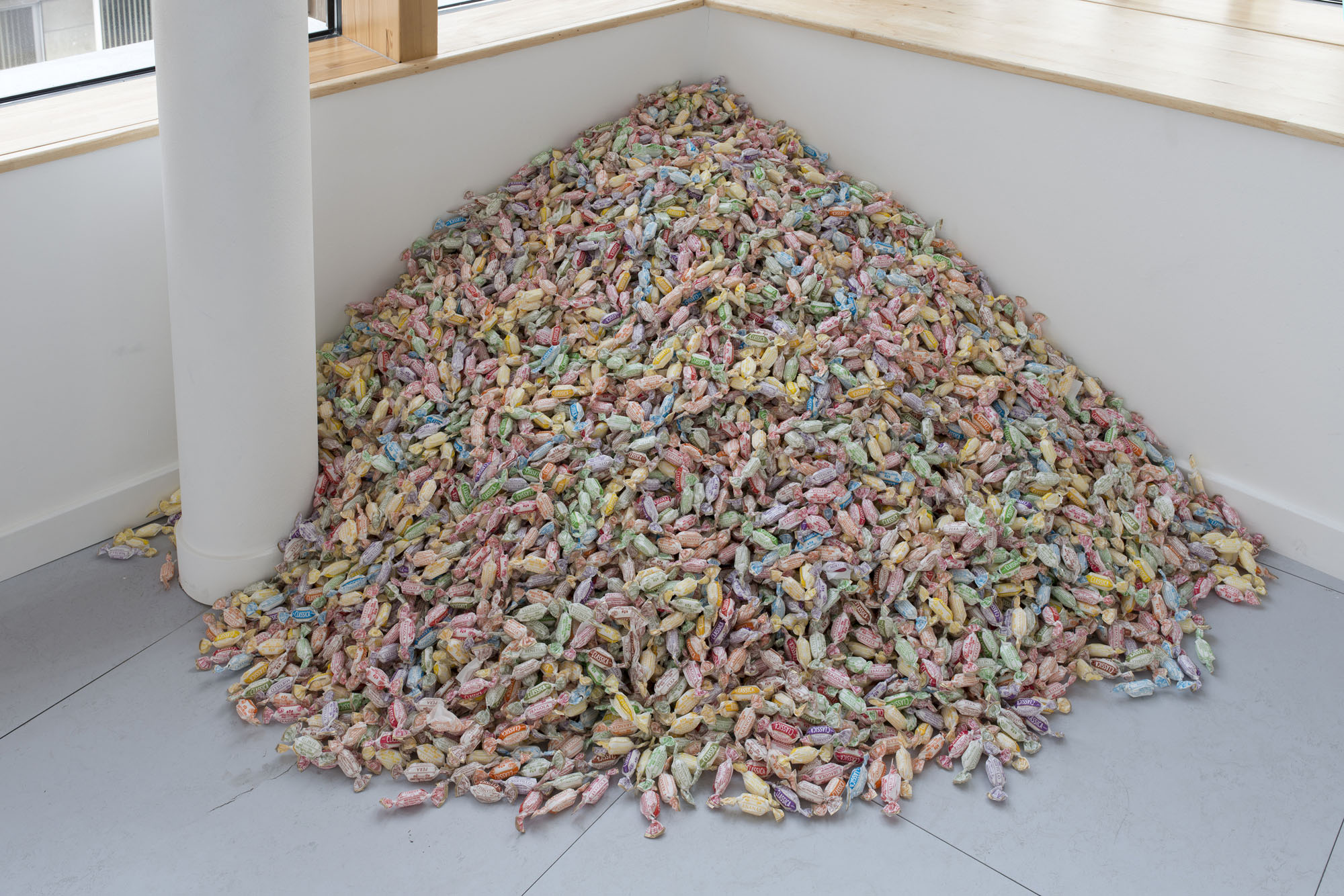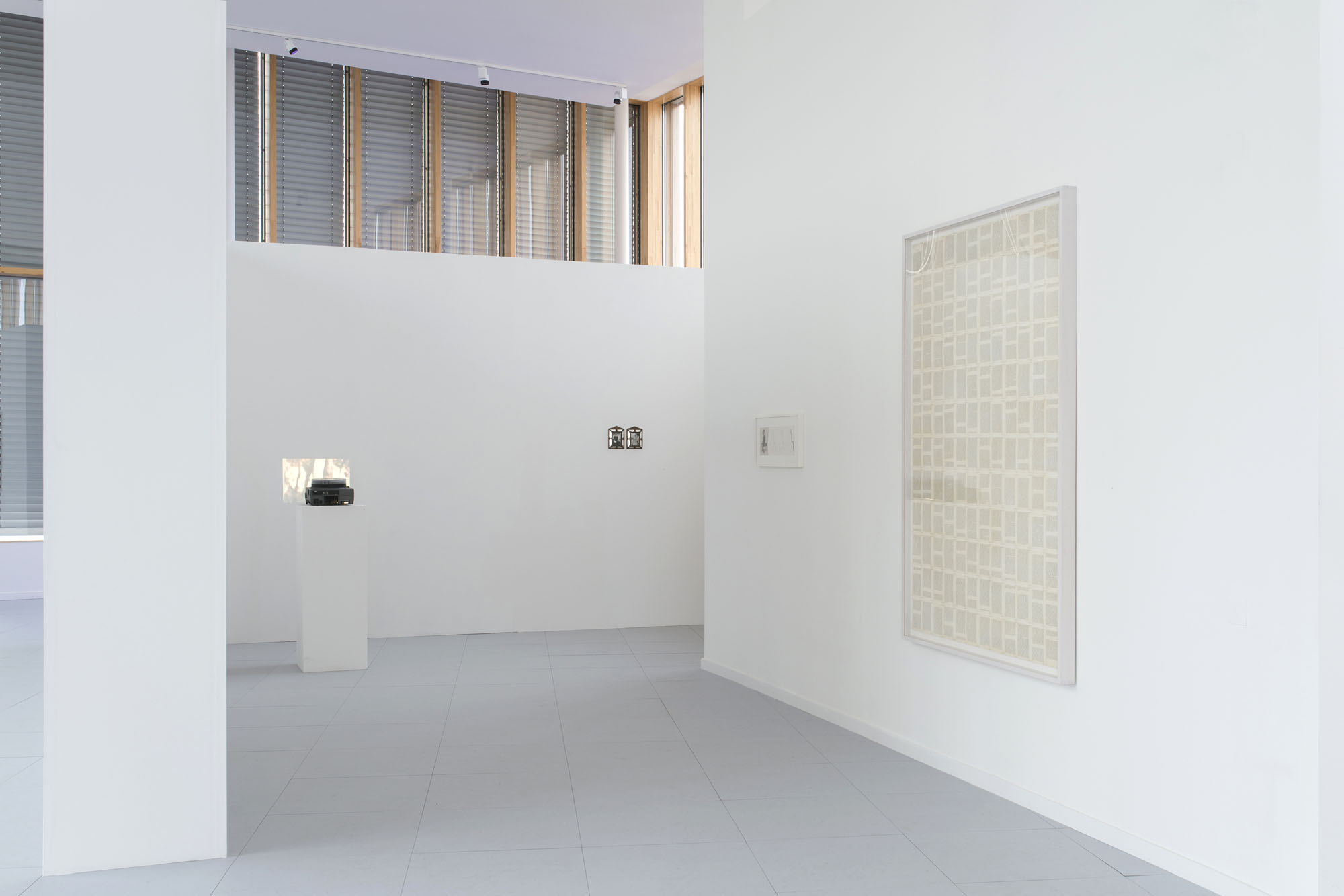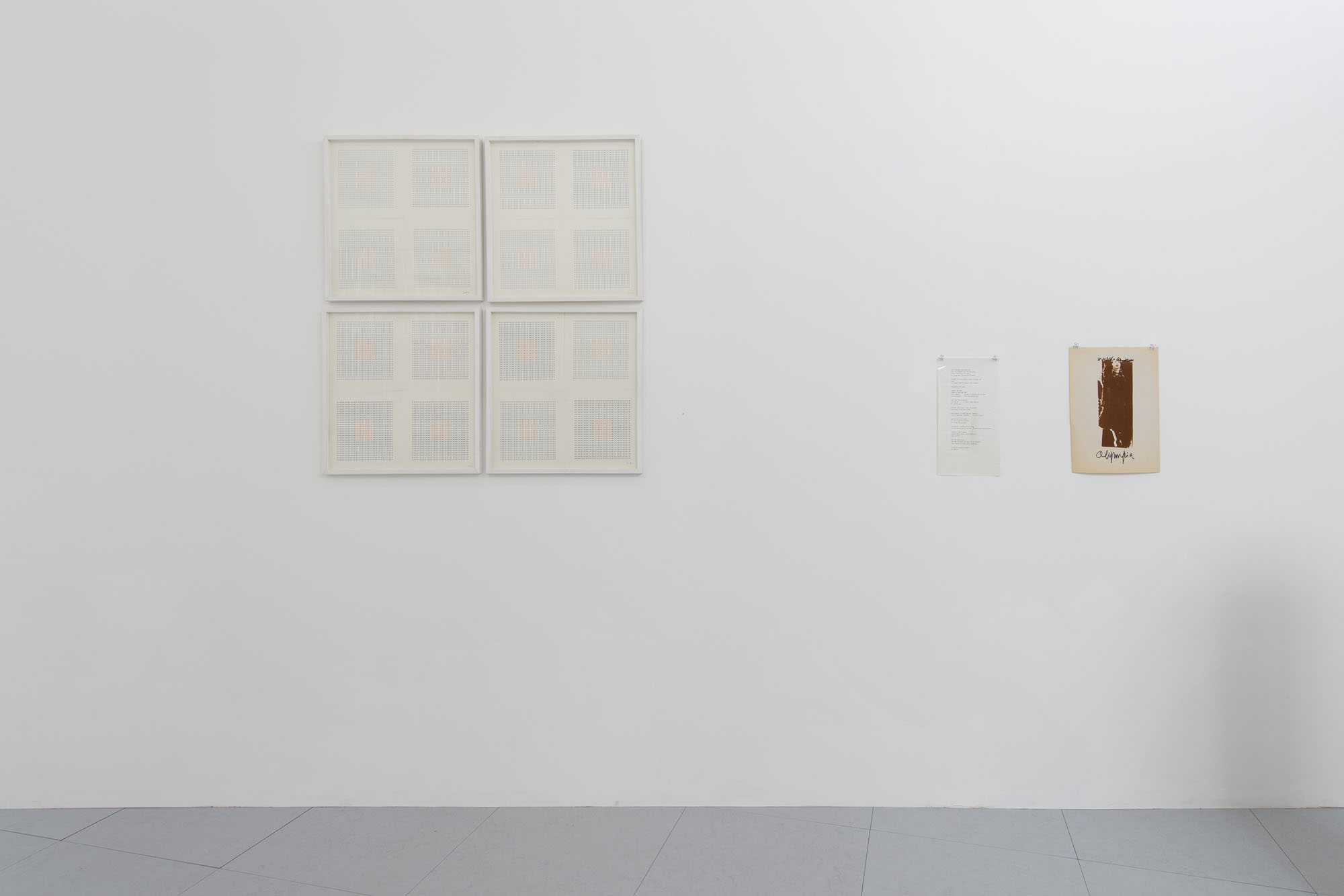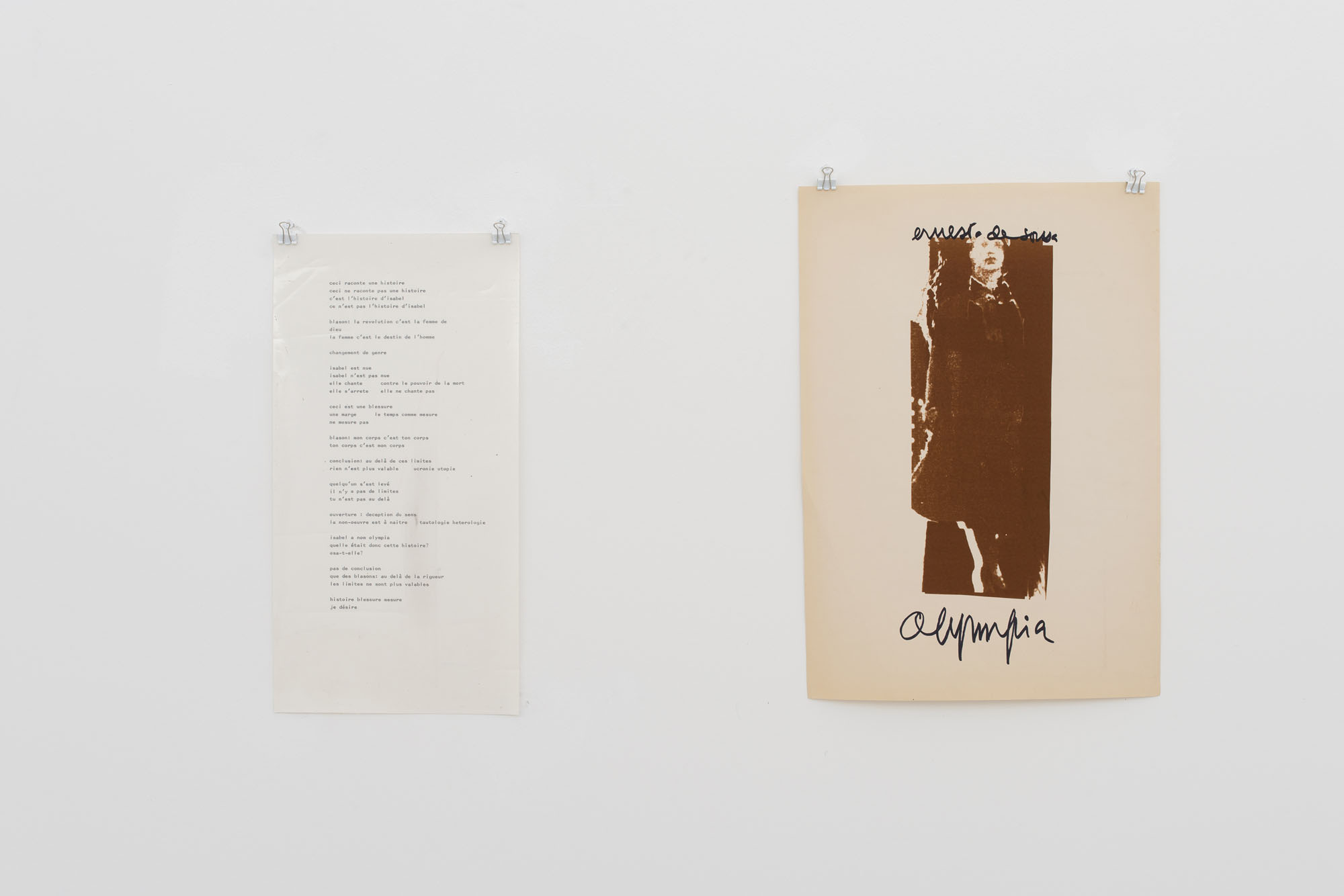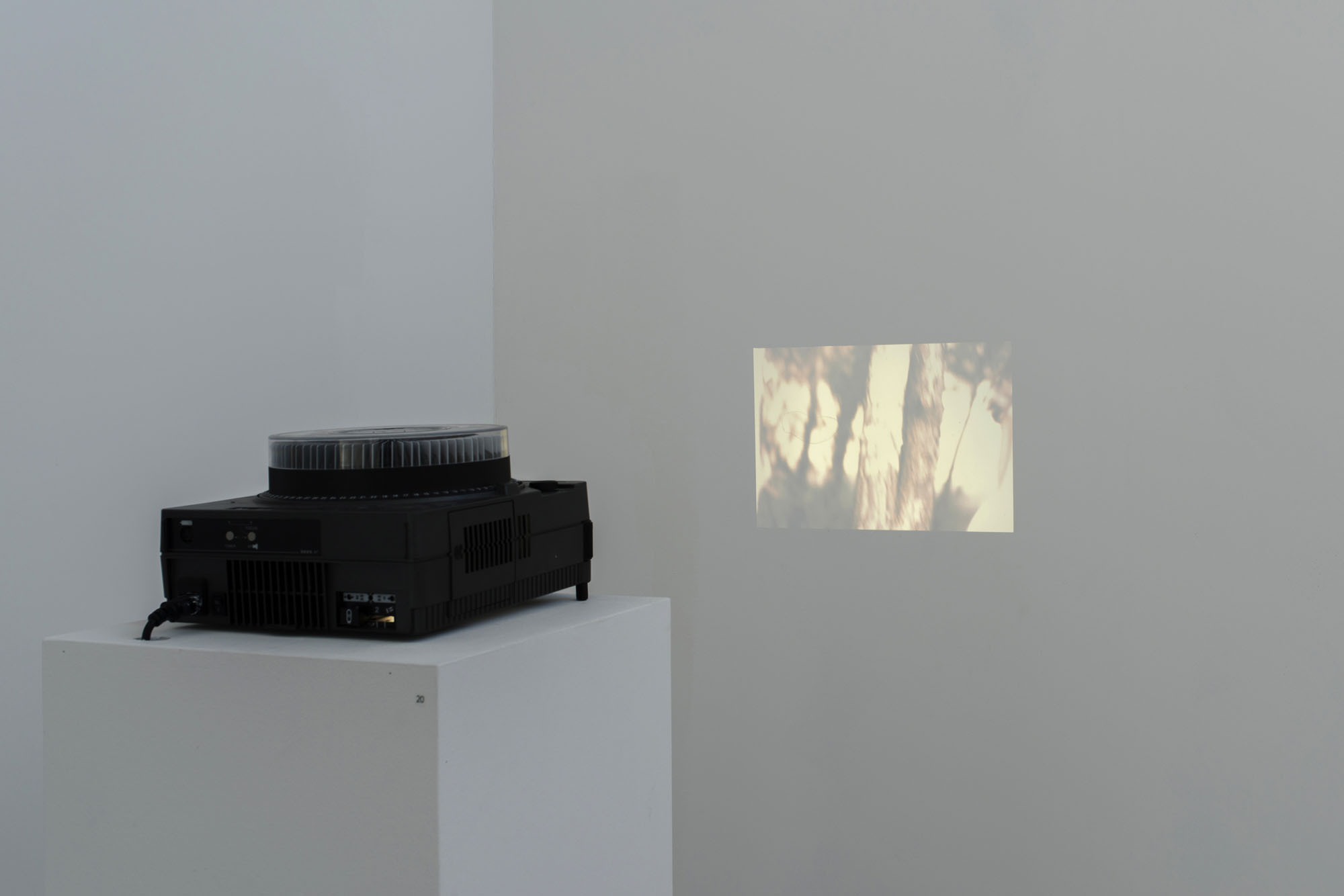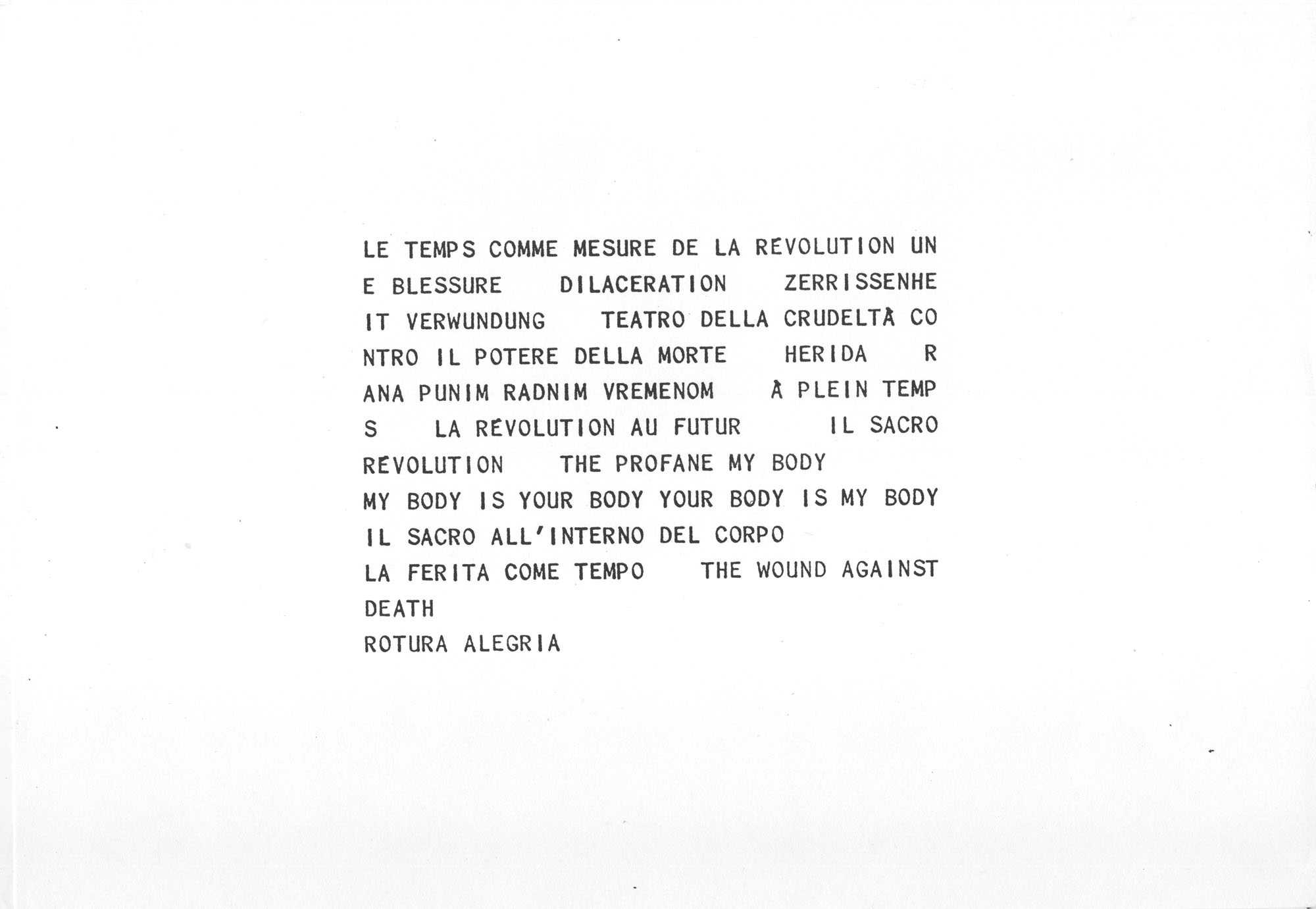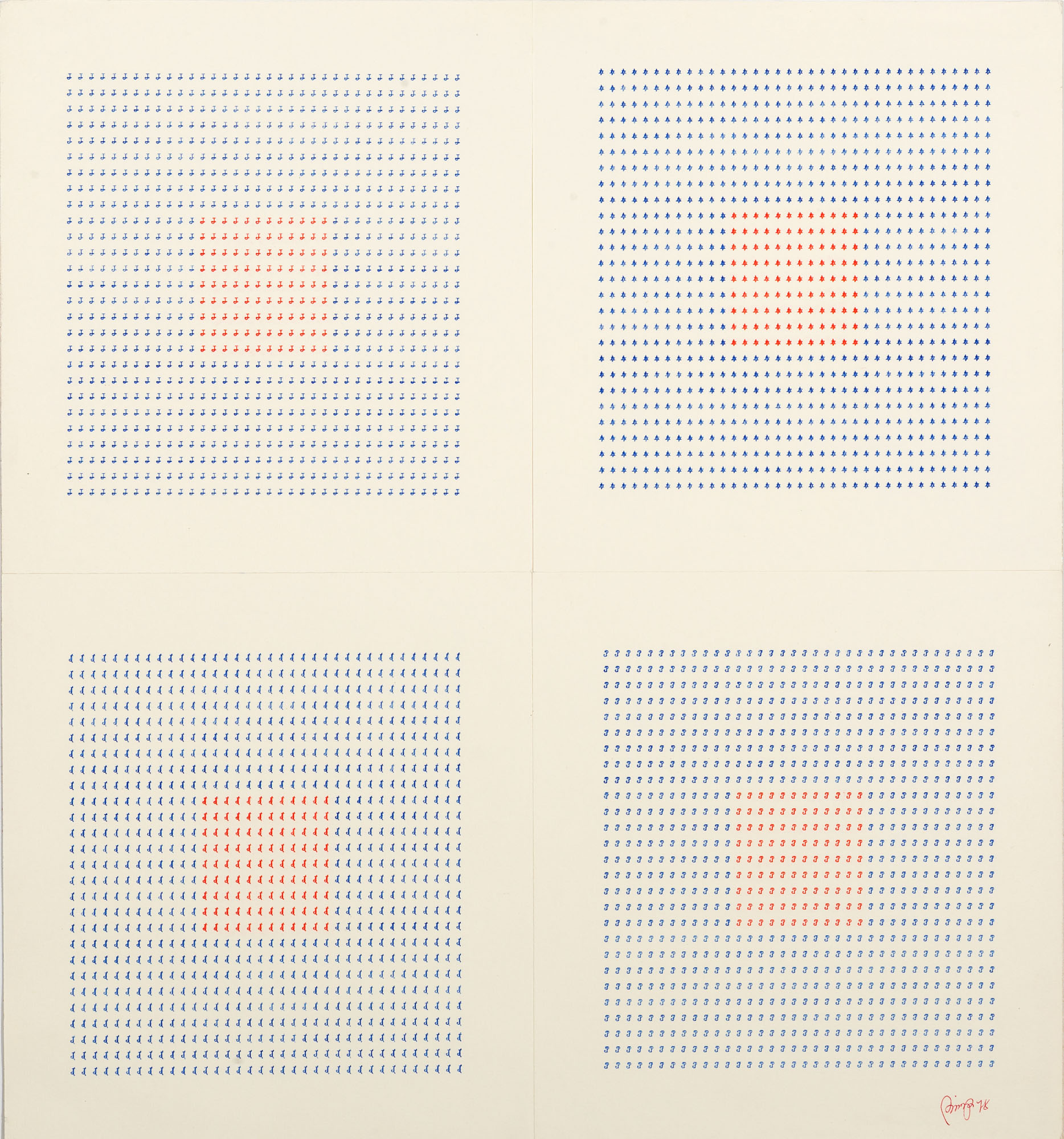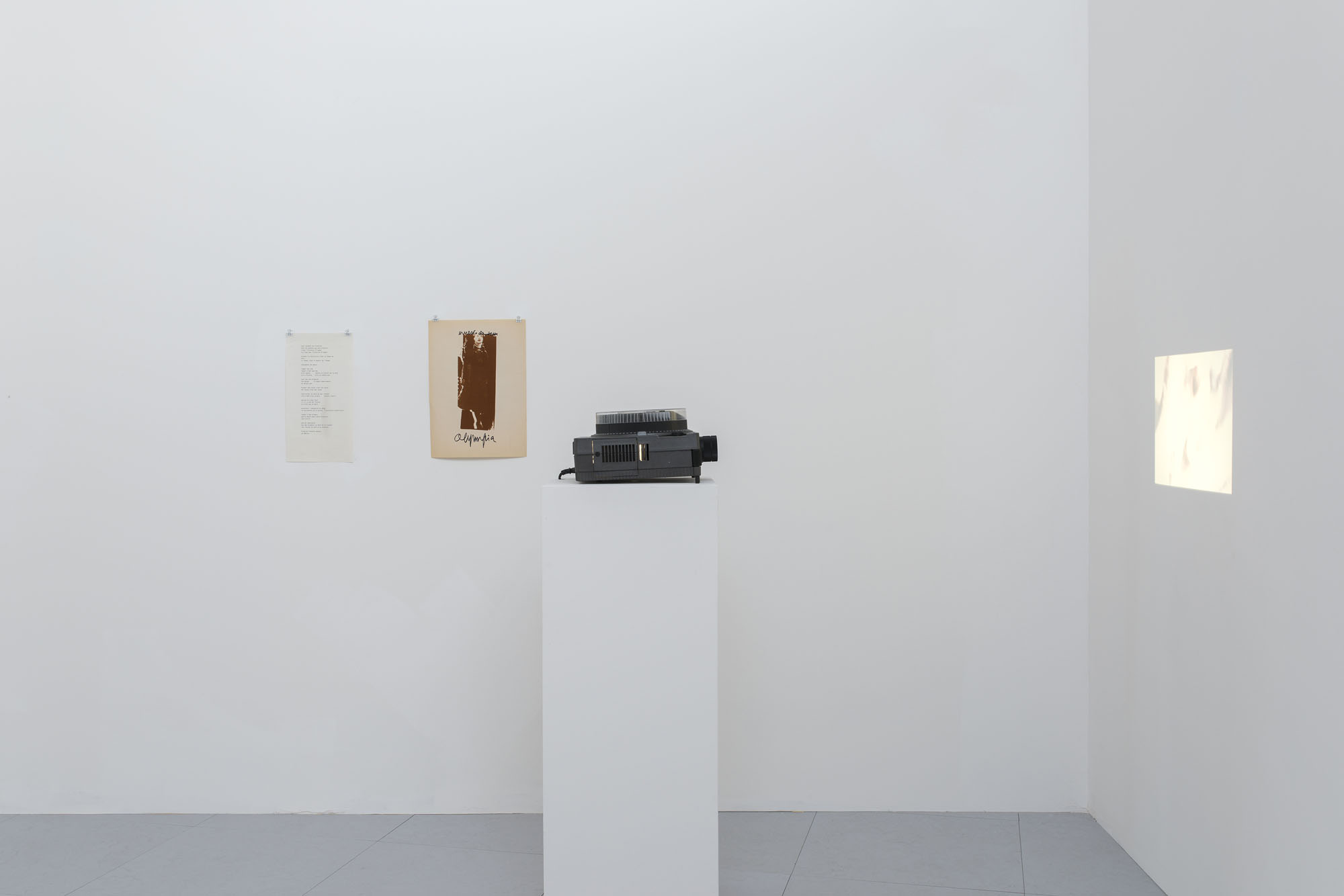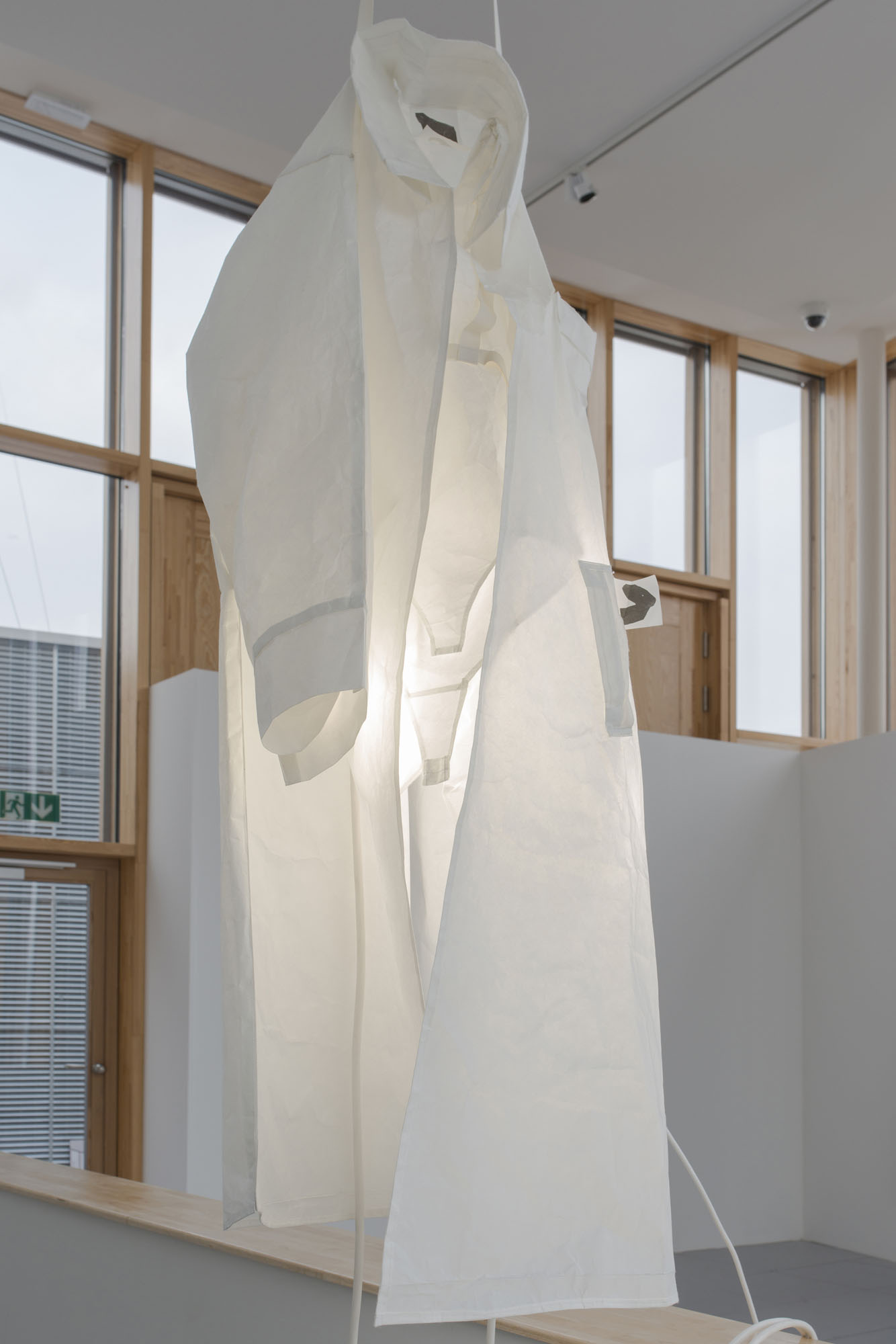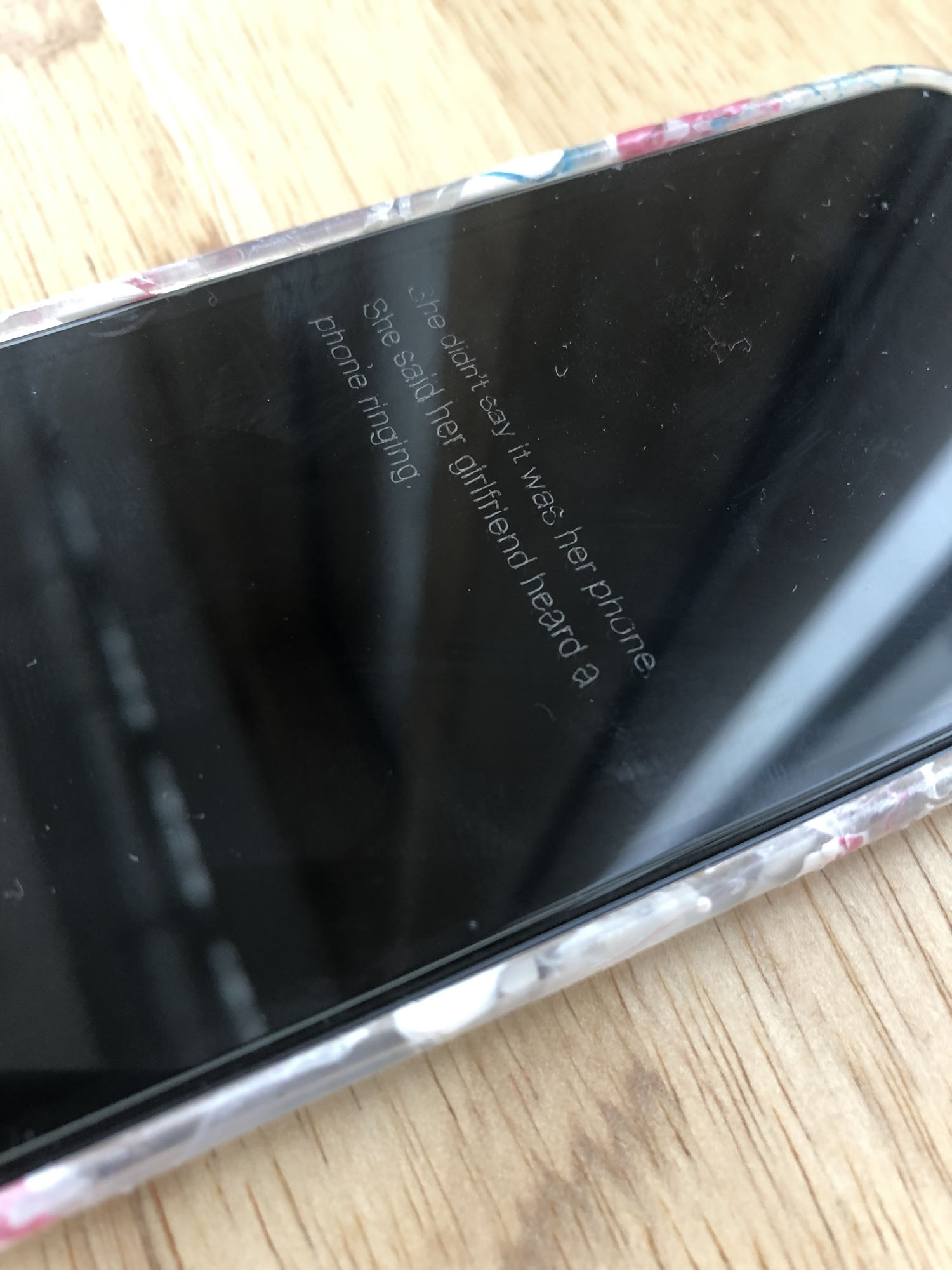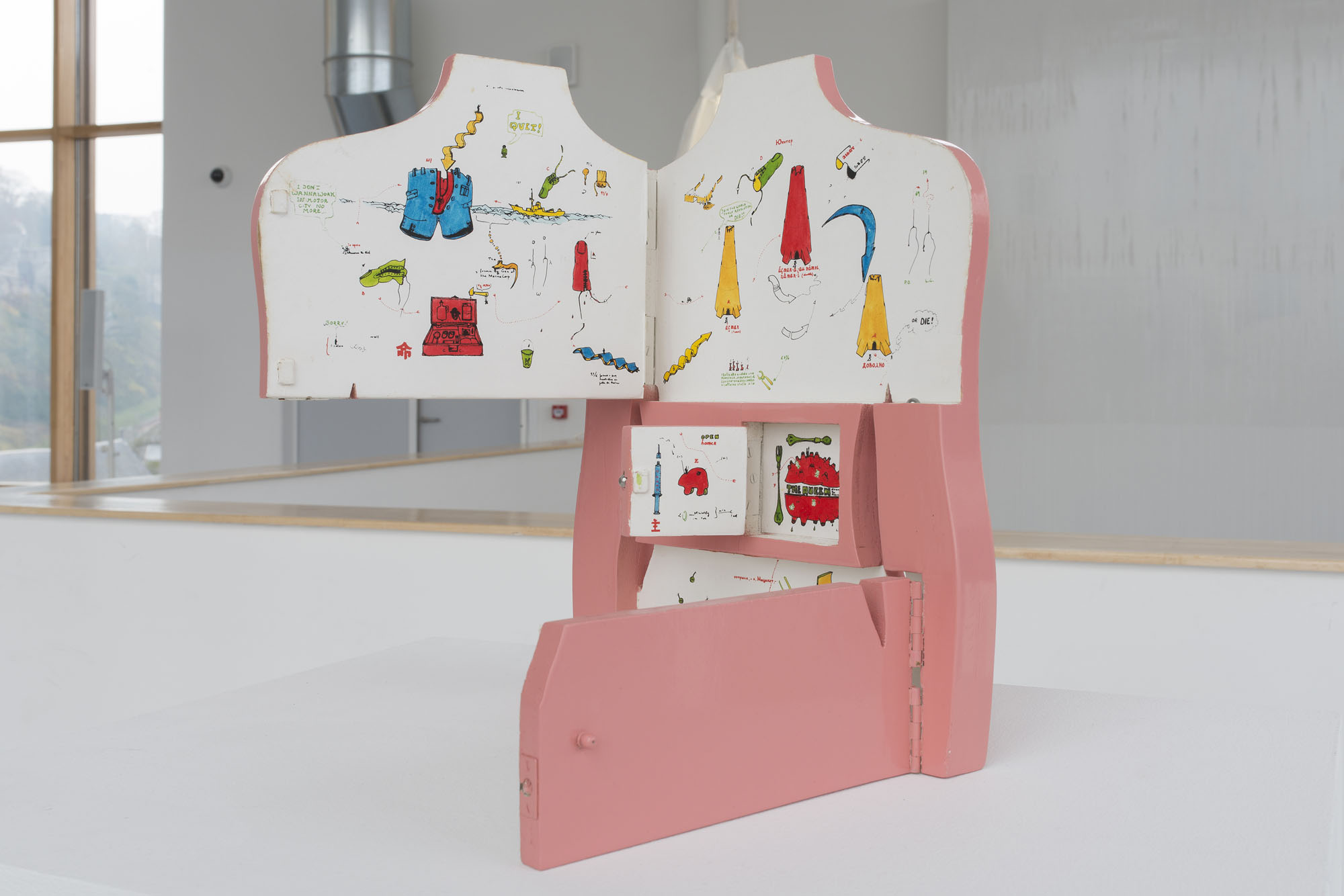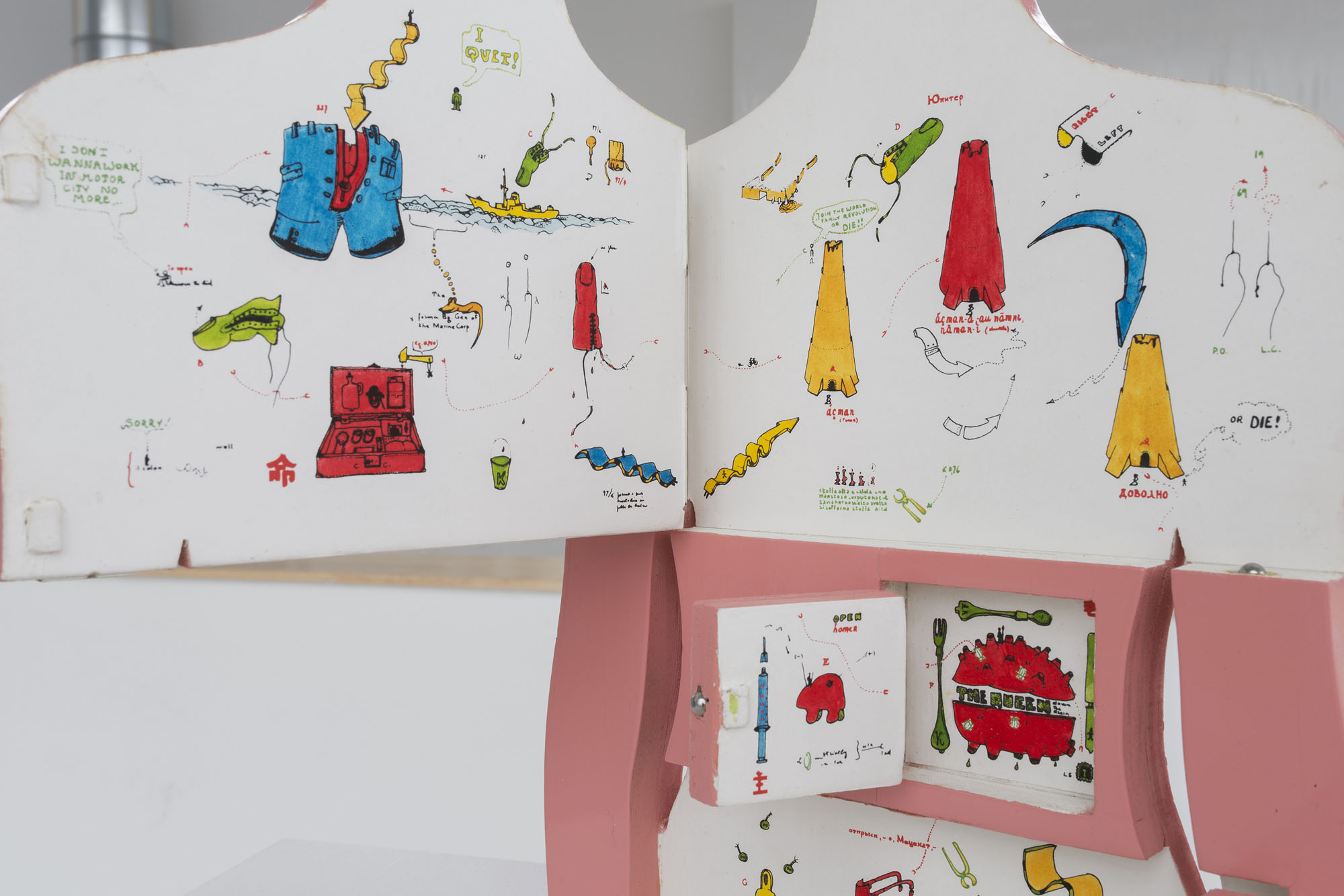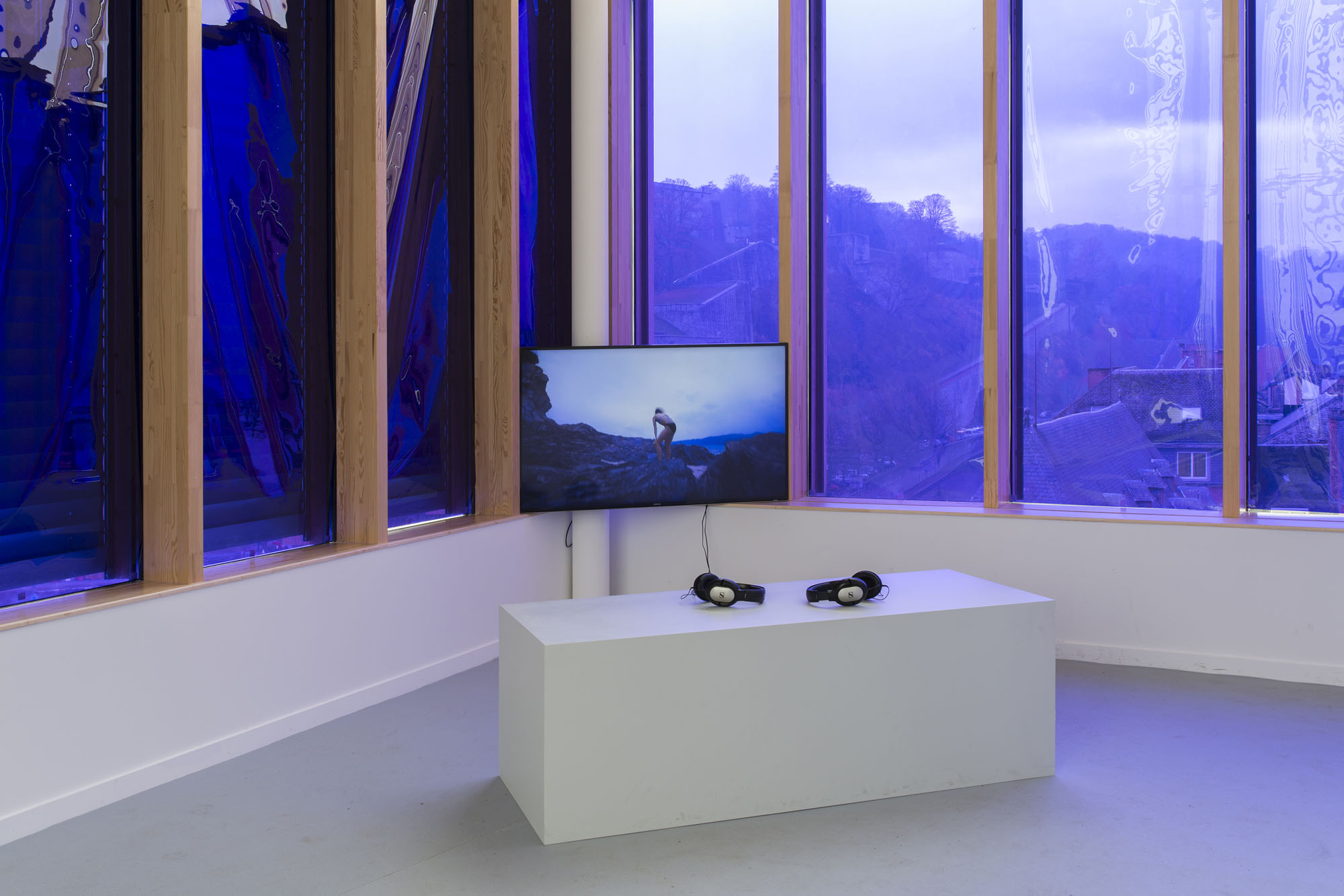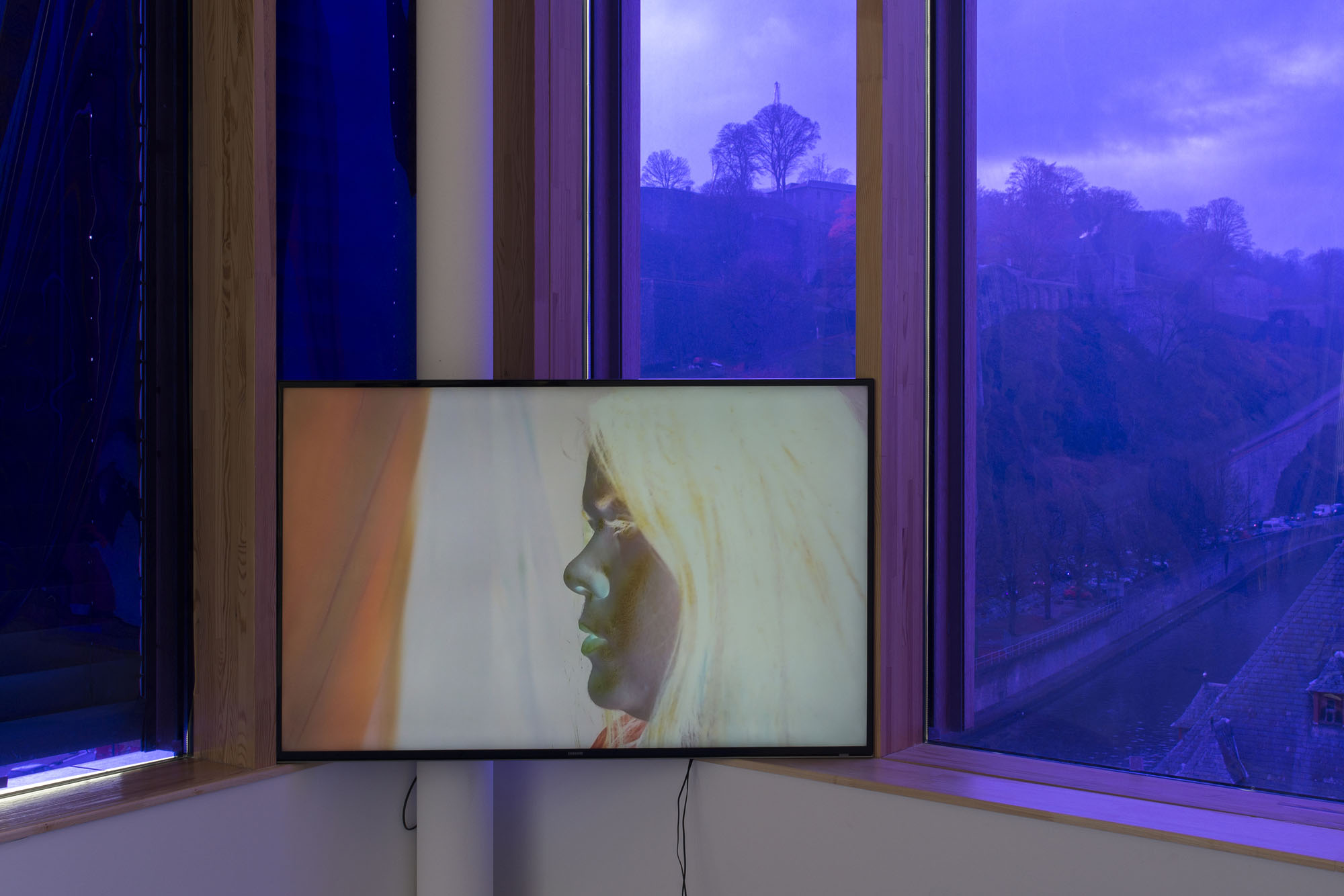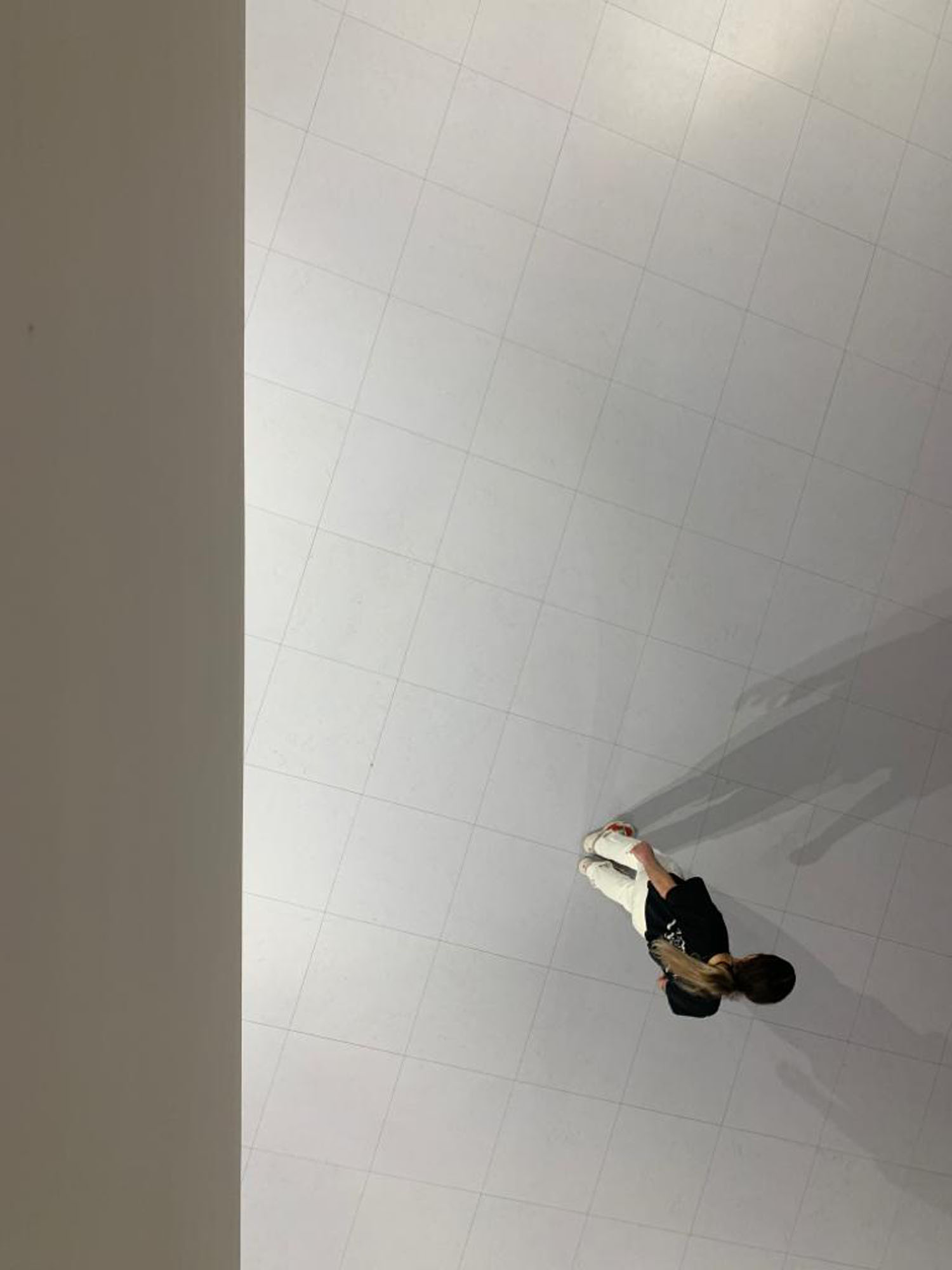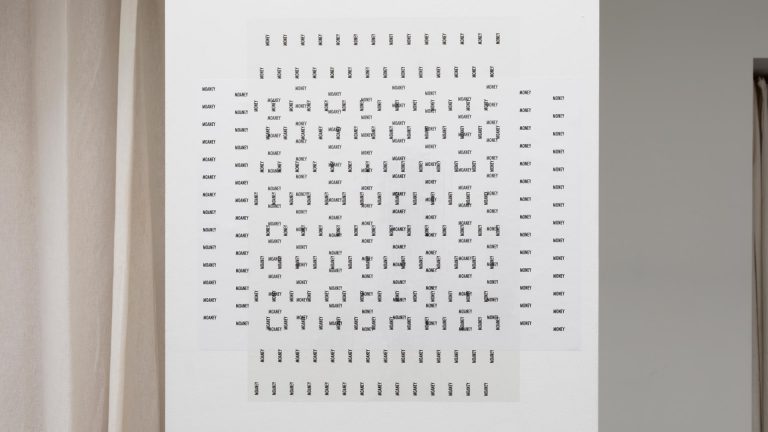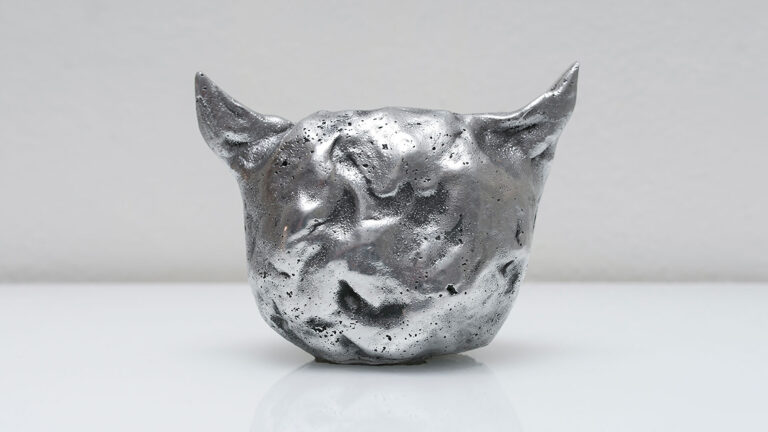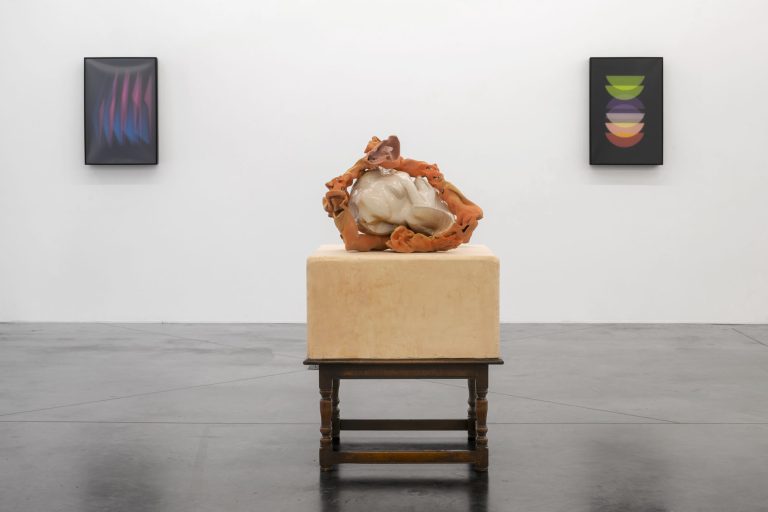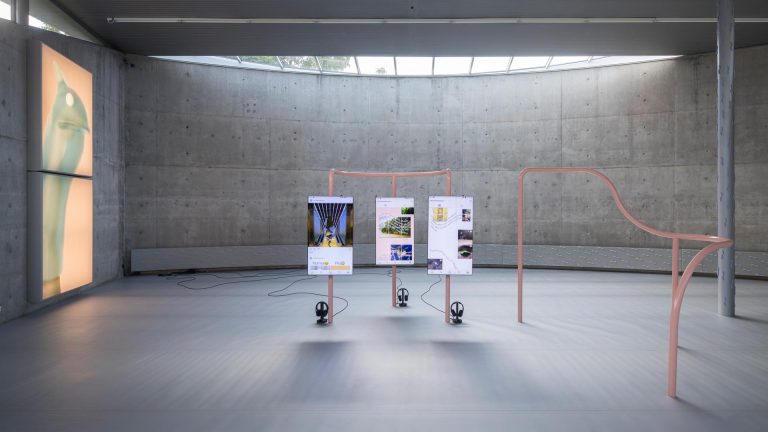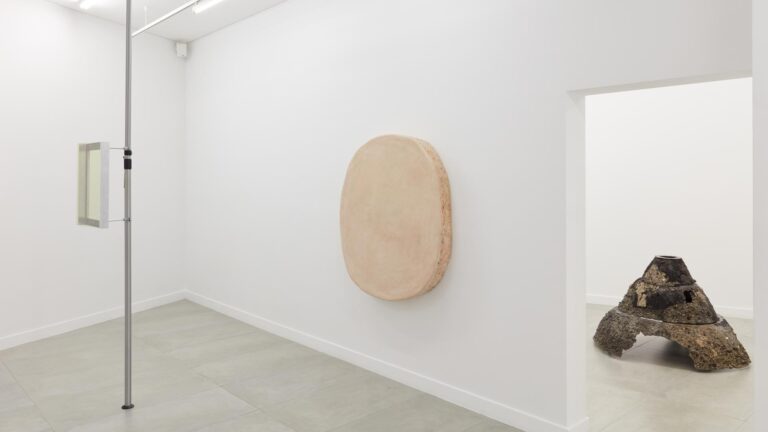Artists: Simon Asencio, Gianfranco Baruchello, Tomaso Binga, Irma Blank, Pauline Boudry, Renate Lorenz, Ernesto de Sousa, Felix Gonzalez-Torres, Karl Holmqvist, Derek Jarman, Ketty La Rocca, Hanne Lippard, Mélanie Matranga, Rory Pilgrim, Michele Rizzo
Exhibition title: This Is My Body, My Body Is Your Body, My Body Is the Body of the Word
Curated by: Lilou Vidal
Venue: le Delta, Namur, Belgium
Date: February 1 – April 4, 2020
Photography: images copyright and courtesy of the artists and le Delta, Namur
Note: List of works available here
This exhibition addresses questions about the ways languages and bo-dies negociate according to their re-lationship to issues of gender, norma-tivity, cultural heterogeneity, and the making and emergence of new forms of writing and narrative. The works brought together here chart a social and political evolution which, since the end of the 60s, has given way to a new kind of poetics, where bodies and words – awaiting identification – have veered towards disembodied, hybrid and fictional forms of imagery and wri-ting. By escaping the coherence of an identity-based determinism, bodies and words become the modus operan-di of new narrative mechanisms.
Starting out with the principle that bo-dies and language share the same so-cial conventions, theorists and artists have attempted to deconstruct the his-tory of identities and a patriarchal and binary vision of the world, through a re-volt in thought and behaviour. This mise en abyme of the concepts of belonging and recognition has led to a rethinking of the body, no longer just in function of its physiological data but according to a critical imaginary which gives way to an entity that is other in its rhizomatic and utopic qualities, one that combines genders, fiction and reality, as well as new linguistic codes.
The declarative, repetitive tone of this exhibition’s title, takes the “body” as a leitmotif, so as to frustrate the strategies of slogan-like formulas. The title functions as a refrain, one that mimics borrowing and contagion. This is a semantic and poetic digression, taking as its starting point the Eucharistic phrase “This is my body” as an attempt to break up and rewrite an ancient Ca-tholic tradition, while “My body is your body” corresponds to the Portuguese artist, poet, curator, and filmmaker Ernesto de Sousa’s (1921-1988) corpus of progressive thinking[1]. Lastly, the origins of “My body is the body of the word” can be found in an expression by the Italian woman artist and poet To-maso Binga (1931), claiming the “corporeal materialisation” of language – the idea that a whole new alphabet can be born from one’s body.
While one might be tempted to imagine the presence of a singular, flesh-and-blood body, here this body will appear rather as a subtraction or montage, in its most abstract, drag, transversal, integrated or collective form (objects, words, sound, voice, sign, dance, color). “I no longer have any secrets, having lost my face, form, and matter. I am now no more than a line.”[2]
A desire for freedom from the conventions of language is evident in the works of the artists brought together for this exhibition and seems to recall the pictographic, animistic, even babelic origins of writing, implying visual and narrative renewal. Fragmented signs, sounds, and multilingual scenarios, go against direct meaning and classical understanding, instead disseminating from undiluted and immersive experience.
Taken as a whole, the works of these artists interrogate, through unusual rituals, our place among a nexus of identities, thus echoing the fragmented notion of the “sonorous” and “atomic” – not anatomic – body declared by Antonin Artaud[3]. This is a political and poetic way of thinking about the world one that might even be described as cyborgian, which, in its ideal hybrid form, would lean towards a post-humanism. “Why should our bodies end at the skin?”[4]
-Lilou Vidal
[1] O TEU CORPO É O MEU CORPO / YOUR BODY IS MY BODY / TON CORPS C’EST MON CORPS is the title underwhich Ernesto de Sousa grouped a series of actions, perfor-mances and exhibitions.
[2] Gilles Deleuze and Félix Guattari, A Thousand Pla-teaus: Capitalism and Schizophrenia, tr. Brian Massumi(Minneapolis : University of Minnesota Press, 1987), p.199.
[3] Antonin Artaud, Pour en finir avec le Jugement de Dieu, Gallimard, 2003. From the transcription of the radio show Antonin Artaud created, Pour en finir avec le Jugement deDieu (The Judgment of God) recorded on the 28th of No-vember 1947, a few weeks before he died.
[4] Donna J. Haraway, A Cyborg Manifesto: Science, Tech-nology, and Socialist-Feminism in the Late Twentieth Cen-tury (University of Minnesota Press, 2016) p.61.




